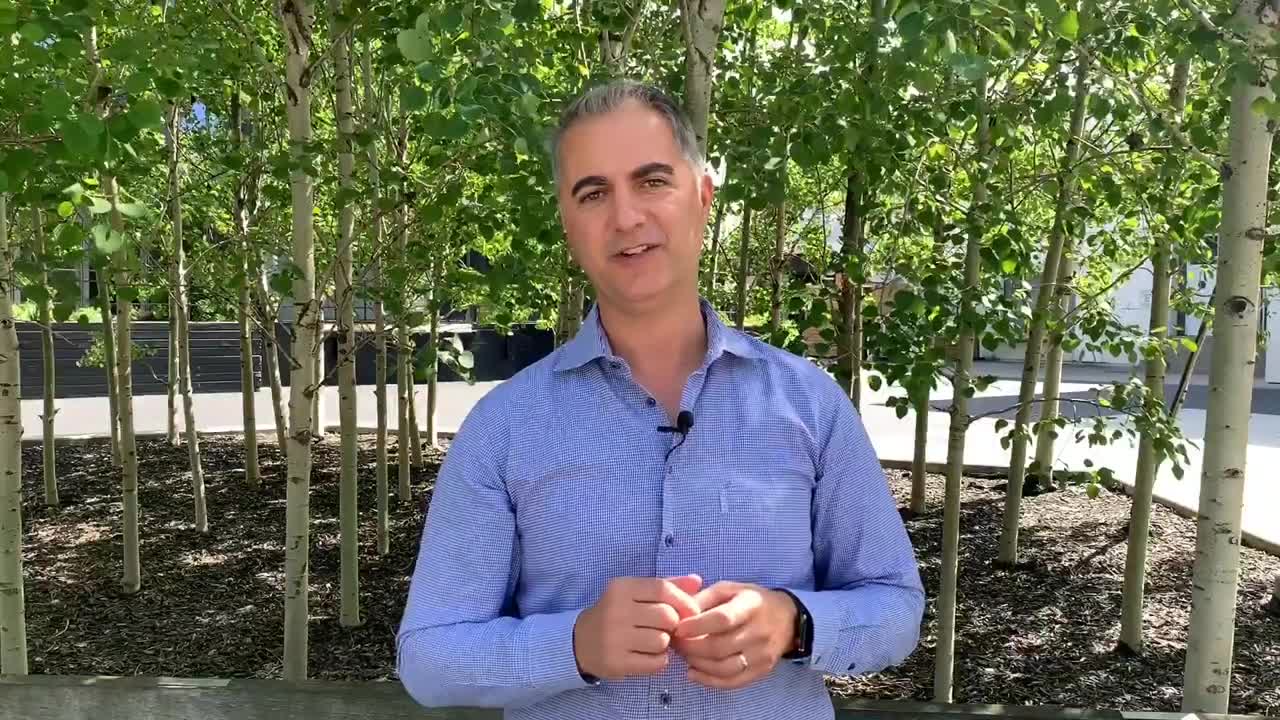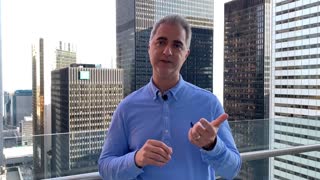Premium Only Content

Practice This Leadership Superpower I The Defender
In my close to 30 years of industry experience I've seen it all, from toxic leaders to incredible leaders that inspire and motivate high-performance teams.
At the end of this video, I'm going to share with you a great example of a positive leader, and expect that every video that I share with you over the next few weeks and onwards, I'm going to highlight one amazing leader in each of those videos.
For educators, HR, Training and Development, this video will help guide your prospective leaders in leadership skills, leadership qualities, leadership styles, leadership vs management.
So why is curiosity so important and vital as a leadership characteristic? Well, set aside all the incredible technology developments and advances over the number of years, as an example, we wouldn't have music on our smartphone without curiosity. We wouldn't have Google Maps or mapping technology if it wasn't for curiosity, and asking what more we could do with E911 technology that came out in the early 2000s.
In my close to 30 years of experience, I've seen companies succeed because of their curiosity. I've seen companies, of course, implode, because they failed to ask the question why.
With all this great innovation and all this great change, what are the five characteristics of leaders who express their curiosity?
The first is that they are highly engaged, present or in the moment, and aware of their surroundings, aware of their employees and their input, aware of their customers, and aware, of course, of the competitive environment.
Number two is they're always looking for new and better solutions. They want to challenge their organization and they want to challenge themselves to be better on a consistent basis.
Number three is that they value other opinions and experiences. They recognize the importance of having a diverse set of backgrounds and experiences because it can only make the company better by bringing in a whole variety of different ideas and perspectives.
Number four is that they know and recognize that they aren't perfect. They don't need yes-men and yes-women around them to just simply agree with their perspective or what they think might be right. They want to be challenged, and they want to look forward with differences and a different perspective to ensure that they're always on and always innovating.
And then number five is that they actually have a vision. They set the horizon for their company, for their team, and perhaps even for society. Just think of Elon Musk and Bezos, over at Amazon, who both have their own sets of vision for space exploration, but they're really setting an amazing horizon, no pun intended, for what might be possible.
So how do you go about expressing your curiosity? Well, there's no doubt, you don't have to be a billionaire to be curious. So really what you have to be able to do is not simply accept the status quo. If you're sitting in your cube or you're sitting in an open-air environment within your office, don't accept the status quo. But it's easier than that.
You have to always be asking six core questions. Whether it's in a meeting, whether it's with a customer, whether it's in the outside environment trying to understand the competitive space.
And these six simple questions are more than just why. It's who?, what?, when?, where?, why? and how?. And so all a tip of the hat to Simon Sinek and the why component, but again you have to ask more than just why to be able to express your curiosity, to be able to innovate, to be able to challenge, and to be able to ensure that you're not just following the status quo.
Thanks for staying until the end of this video, and as promised, I want to share with you a great example of positive leadership. Now many of you are likely following the NBA Finals, and whether you're a Golden State fan or you're a Toronto Raptor fan, or somewhere in between, I think you would all agree that Kawhi Leonard is an incredible, positive example of a leader, both on the court and off the court, and how he commands himself with the media. And one of the most incredible aspects of what he's been communicating is that he doesn't want to play hero basketball. He's not about trying to generate more fans. He just wants to set the tone, play basketball, and win.
Thanks again for following The Defender, and don't forget to subscribe to my YouTube channel, and like, comment and share below. And if you have any great examples of where you've expressed your curiosity, make sure to comment them below. I'd love to hear from you.
-
 6:07
6:07
TheDefender2021
4 years agoWhy do you need a leadership philosophy? I The Defender
33 -
 0:28
0:28
KERO
4 years agopractice
60 -
 17:29
17:29
KERO
4 years agoPRACTICE
164 -
 17:29
17:29
KERO
4 years agoPRACTICE
86 -
 0:27
0:27
Ratbike228
4 years agoWheelie practice!
59 -
 0:43
0:43
robarana0623
4 years agoGCKC Practice
163 -
 3:31
3:31
band practice
4 years ago $0.01 earnedfreak practice 325
169 -
 0:24
0:24
des49ers
4 years agoSebring practice
156 -
 3:51
3:51
lavishlyclawedbyale
4 years agoPractice Hand
41 -
 4:53
4:53
itsanicechurch123
4 years agoshine practice 325
86